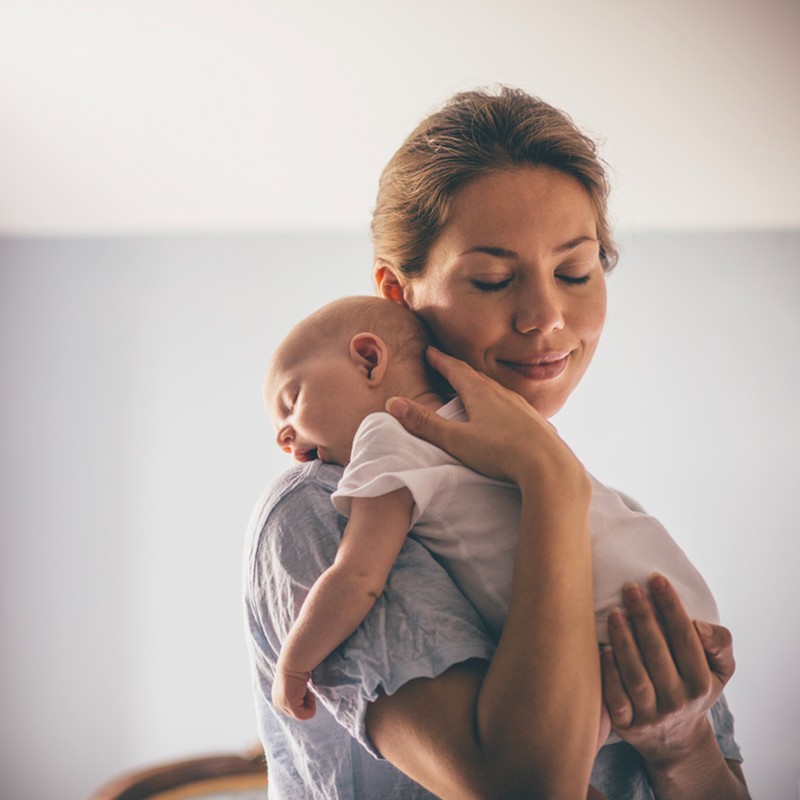What It’s Like To Go Through Fertility Treatment As A Single Woman
A few years ago, if you found yourself wanting a child as a single woman in your late thirties, there wasn’t a lot of awareness around the choice of fertility treatments available. Instead, there was a stigma surrounding single mothers and using sperm banks was certainly not considered to be the sign of someone who had their life in order. But so much has changed since then – families are now accepted as being all different shapes and sizes and strong single women are able to go through fertility treatment without fear or judgement.
The most ‘traditional’ treatment is donor insemination, either via In Vitro Fertilisation (IVF) or Intra-Uterine Insemination (IUI). IVF involves fertilising the egg with the sperm outside of the woman’s body in a laboratory and reinserting the embryos into the uterus, while IUIs see the sperm injected directly inside the uterus. The results of these vary greatly, with the average 35-year-old woman likely to experience a 15% success rate from IUI and 40-50% success with IVF per round. The cost also differs: “IVF is much, much more complicated, therefore is more expensive,” says Professor Tim Child, Medical Director at Oxford Fertility. “Prices will obviously vary from clinic to clinic, but an IUI cycle would probably cost around about £1,000 - £2,000 per cycle and an IVF cycle could cost between £5,000 - £6,000.”
Figures from 2018 show 1,272 women registered to have fertility treatment without a partner in 2016 – up from 942 in 2014. It’s a rise that Professor Child has noticed: “Over the last five to 10 years there’s been an increasing number of women coming forward and an increasing awareness of [women going through fertility treatment] alone,” he tells us. “Unlike 15 years ago, there’s now no stigma attached.”
So why do single women use donor insemination? Professor Child says often it comes down to a woman’s circumstances: “Sometimes it’s people who’ve been in a long-term relationship and a change in circumstances means they’re no longer in that relationship. In their eyes, starting all over again and waiting to meet someone and then being with them long enough that they both feel ready to have children, puts them quite a lot further down the line.“
Women will choose sperm from a database of donors held at the fertility clinic or international sperm banks. Child tells us that at the point of donation, they must be aware of the fact that the child is able to get in touch with the donor once they turn 18. “At most clinics, anyone using donor sperm/is a sperm donor would have to see one of the clinic counsellors to discuss the implications of sperm donation. Anyone who is a sperm donor would go through a consent process whereby they understand, and they give their consent to being contacted through an agency by potential children when those children reach 18. It’s not an option.”
So, what is the process actually like for a single woman? Here, we speak to Polly, who decided to go through IVF treatment on her own aged 37. She fell pregnant with her son Noah, now 16 months, in 2017 after starting her treatment in 2016.
Was there a turning point in your life that prompted your decision to have a baby?
It was 2015. I hadn’t been in a relationship for a while and I was going through a bit of a rubbish time at work that made me ask myself: “What is really important to me right now?” Suddenly things crystalized – what on earth was I waiting around for when there were ways of doing this on my own? I was in my late thirties by then and it was suddenly very clear that if I wanted to do this, it was down to me – no Prince Charming was going to arrive, and this magical romance wasn’t going to happen. If I really wanted this, I had to make it happen on my own.
So, you hadn’t been in a relationship for a while; had you considered IVF earlier in your 30s?
No, not at all. It just hadn’t been on my radar to consider it earlier. I never thought that I would get to my mid-30s and not have a child. My mum had children much younger; though I think in that generation being a young mum was the norm. It wasn’t a conscious decision to put off having children, it just wasn’t something I had thought about until later in my 30s.
Have you always wanted children?
Yes, I had always seen myself becoming a parent in the future. I guess I always thought a relationship came before children, I had always wanted to meet someone and go down the more traditional route.
How long did you deliberate the decision before making an appointment?
It really was as soon as I had made the decision – I attended an open morning at a London clinic, where you could go along for free and find out a more about the process of using a donor. There were gay couples there and heterosexual couples too who couldn’t conceive and were using a donor. I started to find out about the process very quickly after I made the decision. But the process from going to the session to actually having IVF took much much longer.
Were you ever worried about doing it alone without a partner?
Absolutely. I had been single for so long, nearly 10 years, so I was very used to doing everything on my own but that didn’t mean I wasn’t worried about how I’d cope with having a baby on my own. And it’s so traditional to see couples together with a baby, but my friends were brilliant at reassuring me. I was lucky to have support from my family, so I kept in mind that, compared to some women who end up as single parents not through choice, I was in a much better position, both emotionally and financially.
Were they supportive form the start?
I was pretty confident that my immediate family would be absolutely fine with it and they couldn’t have been more supportive. I can genuinely say without exception people have been really accepting. Equally, everyone at work have been great; nobody has ever treated me any differently to how they would to anyone else going off for maternity leave and coming back from having a baby.
It’s an expensive process, how did you manage without having a combined family income?
I can only speak for the clinic where I had treatment, but I paid for it as I went along – you pay for tests and procedures as they happen. But it is a lot of money and a large amount to be paying out. I used a lot of savings. There is so much that can go wrong or may not happen, and I think most clinics reflect that in their payment policies.
So, how long was that wait for you, from when you first registered your interest, to the insemination process?
About two years, because I moved to a new house in the middle. I started off looking in London. I had one appointment at the London clinic where I had been to the open day and quickly decided that it wasn’t for me, partly because it was hugely expensive – it felt a bit like they were charging for blood tests that I could get on the NHS for free and didn’t make that information aware to me. But mainly because I had an appointment with a doctor there who I didn’t really get on with, so after that I tried to see what I might be eligible for on the NHS, which was basically nothing. Then I moved house to Oxford, so I had to start all over again. It was early 2016 that I started to look at the Oxford Clinic, but for various health reasons I didn’t have IVF until January 2017.
Was there something in particular that the doctor in the London clinic said that upset you?
Yes, I was talking to the consultant and he said something off the cuff – “Why haven’t you got a boyfriend?” – which I thought was massively insensitive. I started to cry and he said, “Oh no, you can’t get upset, we have got to build a relationship if this is going to work.” But I felt he had been very insensitive – what do you say to a question like that? I would love to have a boyfriend and not be going about it this way, but this is the way that life has turned out for me.
Why did you choose IVF over IUI?
Very simply, I had had some health problems in the past and it was pretty clear to me that IUI wouldn’t work.
What did you look for in a donor – what characteristics were important to you?
Initially I thought every clinic kept its own sperm donors. I later found out that yes, clinics do hold a small number, but you need to look to international donor banks for a wider selection – there are particularly a lot in Scandinavia. I went with the clinic’s donor, but more by chance. When I was talking with the clinic, the nurse described the donor and maybe it sounds terrible, but in my head I was so set on it happening and he sounded, not perfect exactly, but so like the sort of guy who, if I had met him in real life, I would be attracted to. That was it for me. Since speaking to other solo mothers, I felt almost a bit irresponsible about the whole situation, because I didn’t really spend very long choosing the donor. But I knew the clinic had done all the health checks, and he had been through the counselling and everything, so I was confident all that side of things was taken care of.
What information about the donor is revealed?
Information about his profession and outside interests. It depends on the donor and clinic, to be honest. Some friends of mine had much more information early on about the donor but I just had what I got from that nurse on the phone call. You can apply to the Human Fertility and Embryology Authority – they’re the overarching body who hold all the information. After Noah was born, I got in touch with them, because they can also tell you if there are any siblings.
And finally, what advice would you give to single women considering fertility treatment?
I would say don’t doubt that you can do it. You find resilience, energy and patience that you never knew you had. But the process can be hard and upsetting, so don’t try and go through it on your own; even if you are going through it without a partner, don’t shut out friends or support from family. When I had one failed round of IVF it was devastating, because you put so much energy, emotion and money into it that you need people there to pick you up and to understand. But don’t doubt your ability to do it, just get the support you need.
Find out more about Oxford Fertility here.
DISCLAIMER: We endeavour to always credit the correct original source of every image we use. If you think a credit may be incorrect, please contact us at info@sheerluxe.com.






